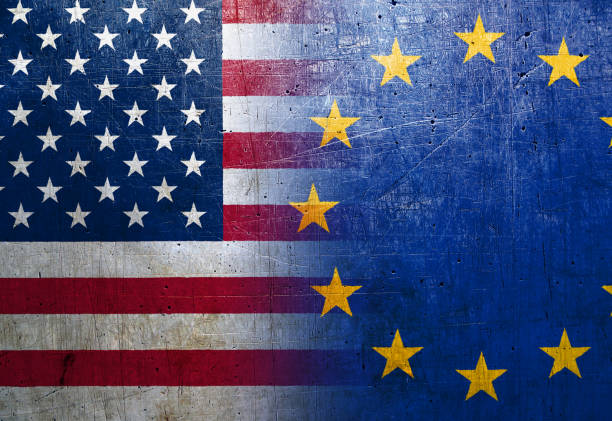
For a long time, Europe has been one of the most affluent continents in the world. Comparing themselves to the people in Africa, or South America, Europeans maintained the belief of being the privileged few of the current and previous centuries. But a study conducted by The European Center for International Political Economy, a think-tank based in Brussels, comes to show that when the term of comparison changes, so do perceptions.
And while the European Union maintained an economic lead ahead of many other actors, the comparison of GDP to the United States of America left many surprised.
In 2008, the Eurozone and the United States both boasted similar gross domestic products (GDP), standing at $14.2 trillion and $14.8 trillion. Fast forward fifteen years, and the Eurozone’s GDP has inched past $15 trillion, while the US GDP has skyrocketed to an impressive $26.9 trillion. Consequently, the gap in GDP has expanded to a substantial 80%.
Experts attribute this to the way in which the EU close-to halted its economies in the face of the Covid-19 pandemic, while the United States (under the administration of President Trump at that time) chose a more economical-focused approach. Furthermore, the results are also due to the financial hardships endured at the moment by Germany, who used to be powerhouse of the Union in these matters.
But Germany has been hit hard by reductions in Russian gas supplies and faced challenges due to China’s stricter stance on its exports of automotive and machine tools. In contrast, the United States seems relatively indifferent to these issues, benefiting from an abundance of energy resources as the world’s leading producer of crude oil, accounting for 20% of global production, surpassing Saudi Arabia’s 12% and Russia’s 11%.
Moreover, the analysts commenting the information put the blame on a reduced consumption of goods on part of Europeans and an aging population.
The information created a large debate on the world’s most popular forum, Reddit, between Europeans and Americans, who discussed other possible causes. Most Europeans commenting on the issue proved to be rather upset by this situation, as it shows that things are not headed in a good direction.
A user from the Czech Republic wrote in the public discussion, that gathered nearly two thousand comments:
Lots of Europeans are deluded by the fact that we can maintain the same lifestyle by doing absolutely nothing. Unfortunately, the world doesn’t work like that. Europeans are averse to taking risks, to trying new things. If there is any innovation, we immediately sell it instead of growing it. There are countries where credit cards are not the norm still, because people think the government will spy on them. This type of fear of technology will be the death of Europe.
A Romanian commentator added:
That is troublesome, since the near future does not paint a picture of economic growth but numerous problems, from energy crisis, climate change to waves of illegal economic migrants. However, solving these problems will certainly lead to a much more rugged economy and a more cohesive union.
From the Netherlands, another user opined:
With the burdens of having to take care of growing amount of older people with fewer young citizens things will just spiral down and progressively get harder for everyone. Healthcare won’t be able to cope with all the old people getting sick. Longer waitlists, inadequate care and probably a lower life expectancy awaits them. The smartest young people will bail out, causing a brain drain. Those that stay will experience a higher workload, and probably a lower quality of life.
Will the old continent be able to catch up with the economy of the new? That depends on many factors, but in many ways (especially after the events of the past years), the probability seems to become lower and lower unless ambitious changes are made not only to the way we, Europeans, do politics, but also to the mentality that has led to economical stagnation and the consequences it could present.



 Subscribe
Subscribe